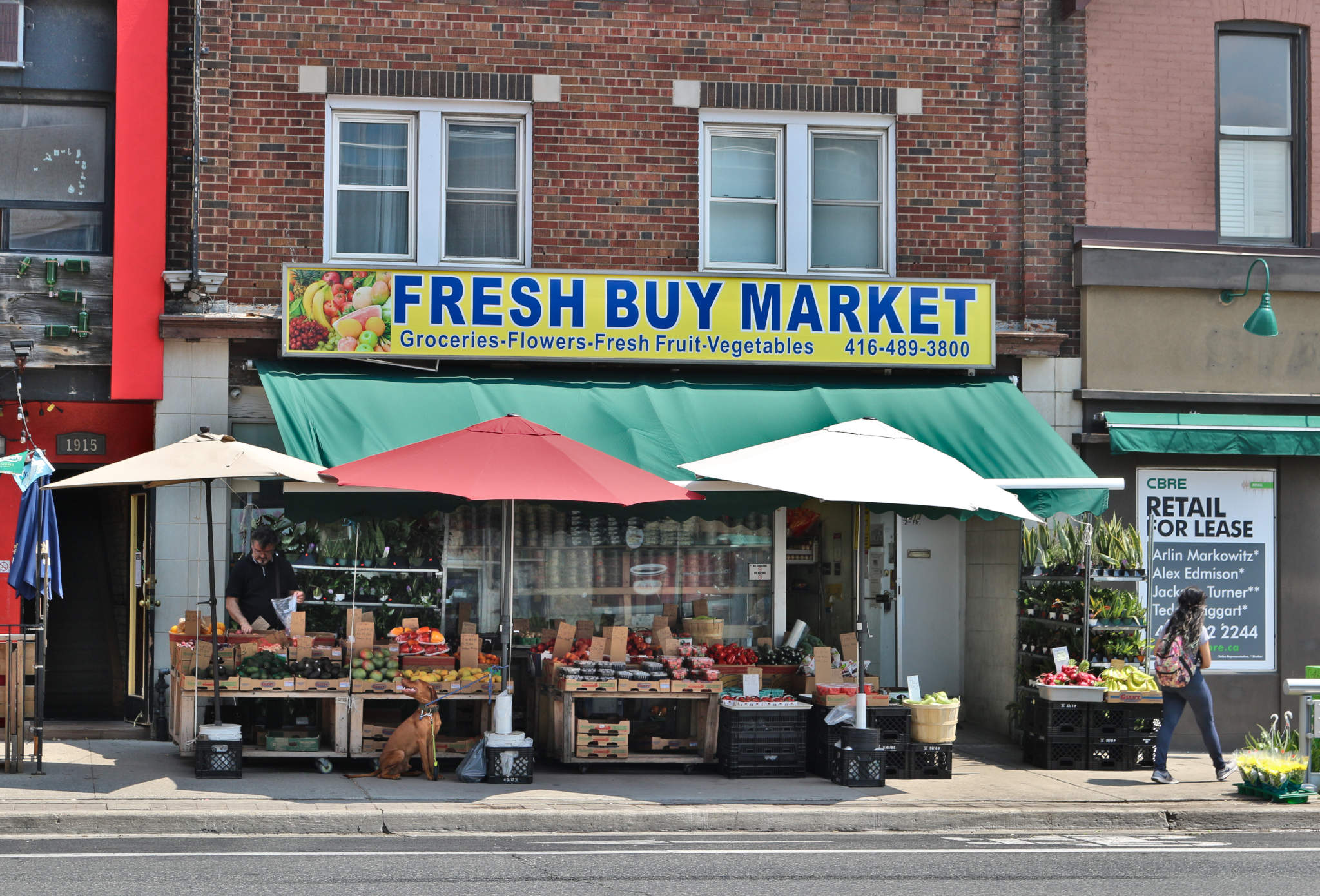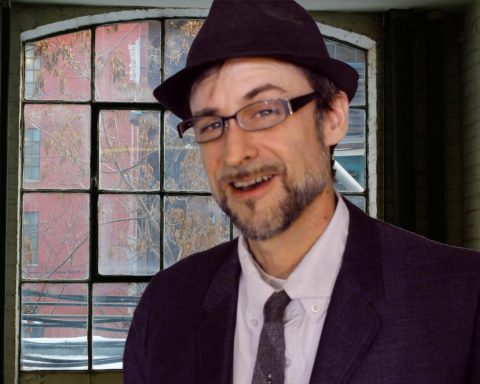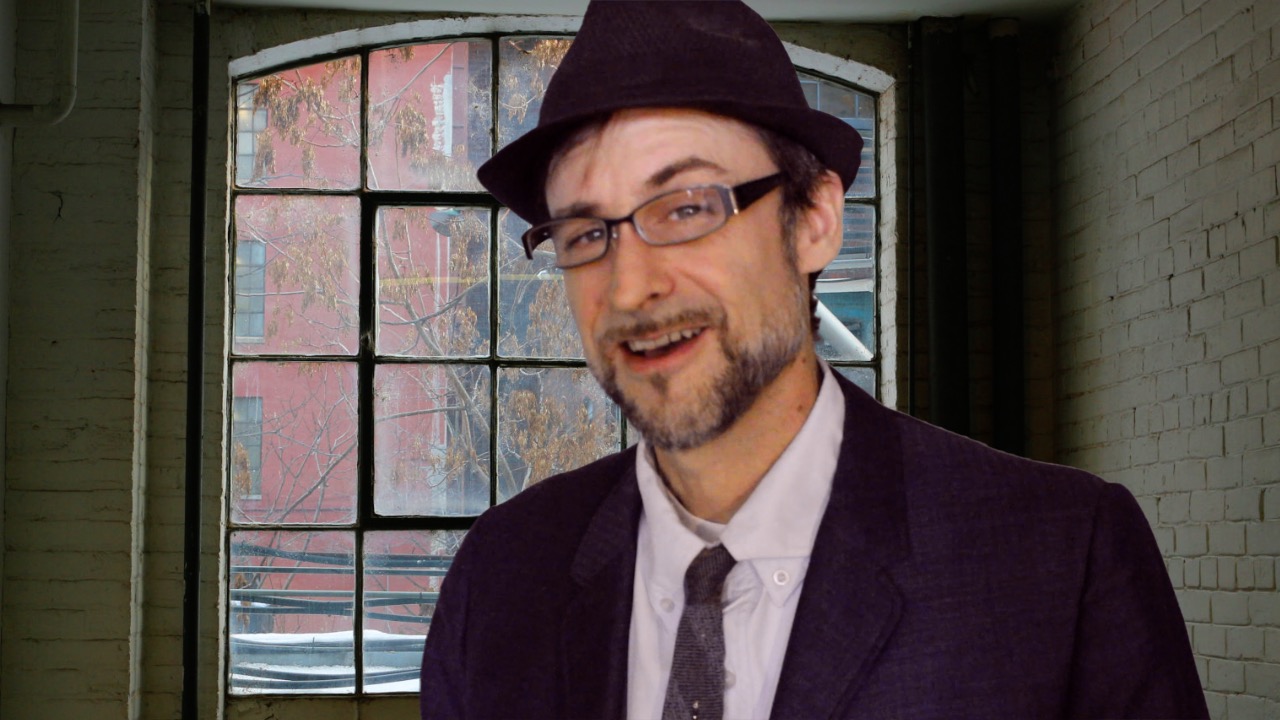Who is a rebel – what is the system? What is oppressive conformity, and what is heroic resistance? Where is corruption? Who and what holds real power? When is knowledge dangerous, who gets to decide? How free are we really willing to risk being? How much responsibility must we take?
Most of these are questions which seem to have several different sets of rather simple answers, depending on which belief system and/or tribe they are coming from.
But I don’t think any of the answers to questions like these are simple anymore. More twisted and puzzling than anything. And I don’t see any serious rebels here at all.
I hate to be rude and perhaps overly direct but – If we were doing this right, it would feel good.
Practical reality-happiness is what I’m after. As clear on the facts as thermodynamics, not some Pollyanna delusion – leading not to the cynicism our denial keeps producing, but the feeling of really engaging with the world and really doing what we can, under the circumstances.
Doing as well as we can under the circumstances is a strangely universal human standard. We all know everything is and looks different for every other person. But we can all credit a full effort, even in ourselves. I am convinced that we might begin to ease our epidemic levels of alienation, hopelessness and loneliness, if we stopped denying the most challenging things before us, and instead started working on them, as best we can – together.
¯\_(ツ)_/¯










As usual, tons of great food for thought here! For what it’s worth, I wanted to leave a few thoughts – which, as usual, I hope are of some use even if not ideally coherent. And I want to emphasize several key points at once, but may end up contradicting myself in the execution – I contain multitudes! Among those multitudes: a great respect for the individual and democracy. For truth and learning and freedom. A spirit of experimentation and resilience, but also an acute sense of the fragility of people and communities, and a wish to protect both. In all these things, there is a danger of reifying idolatry that makes us overlook the consequences to life and its conditions; but there is also a danger of not allowing ourselves to dream big, or feel big emotions.
I think that some of the toxicity you identify – quite rightly on both “left” and “right” – is a symptom of social media. The tricky thing is that social media is an outlet for a lot of negative emotion and antagonistic framing of others – it only works so-so as a source of real democratic debate and collaboration. Most of its more capable and empowered users are careerists, many of whom self-consciously police discourse in ways that elevate their virtue signaling priorities above substance and respect. Then there’s a large layer of disenchanted users who are online mostly to air their frustrations, and get an occasional hopeful lift – or at least entertainment.
There is a vicious cycle of cynicism. Over the course of several years, it can indeed undermine our sense of credible collective responsibility. But this isn’t because of the multiplicity of viewpoints or the cacophony (or incoherence) of discourse on those platforms. It’s more because so many are spending SO MUCH TIME on those platforms, that they become more real than reality (they come to constitute reality). Opportunities for more productive endeavours fall by the wayside.
I remain agnostic about social media, but we must take some important lessons from close observation of it. Tribalism, alarmism, and mass deception all skew our sense of reality. A handy (albeit loaded) term in the social media sphere I regularly observe is “gaslighting”. This encapsulates the undermining of individuals’ ability to judge anything for themselves. And that ability is the only thing that can make collective responsibility credible. Even if everyone could be programmed the way I want them to be, it wouldn’t be real, and it would be a step in the wrong direction. Without a doubt, the worst people (anywhere, really) are the ones who want others to “shut up” and listen to the experts before forming, or expressing an opinion, on pain of ostracism and vilification. All that does is maintain the echo chamber.
Listening to this episode, I’m reminded of the old saying that “the personal is political”. This was a way of saying that one’s own struggles are, at a different level of analysis, not just one’s own. It was a cry for greater empowerment of the individual, who 1) had not recognized the wider social factors influencing their situation, and 2) had not recognized how the private (personal) struggles of others was a basis for solidarity and strength. The principle “my body, my choice” came to be recognized as a fundamental right, meaning that it applied to everyone equally, however imperfectly it was actually applied in practice. Some foresaw a great upheaval of anarchy resulting from it (many still do). But they couldn’t see the injustice and inhumanity of ignoring that principle.
Those with an agenda – any agenda – often value simplicity, because an unencumbered approach seems to reflect the urgency of the situation. But freedom is complicated – not only complicated to understand, but it actually complicates matters. And for many of those in positions of relative privilege or advantage, it has been seen as something that could be safely disposed of without sustaining any negative consequences. This is the problem our democracy is currently facing. The tendency of a few to desperately cling to their illusions, by purchasing short-term security with their (and others’) freedom. And they will indeed invoke principled sacrifice. How much of that is alarmist, and how much justified? The people can certainly make things worse – they can commit outright atrocities – but governments are so much more efficient at it. A fundamental principle of democracy is vigilance with regard to this danger – not a fantasy of simply taking the reigns of power and implementing wide changes. Many of those could themselves amount to atrocities.
But I suspect that atrocity talk does little to address your point about lifting people’s mood. I believe there is a soul-sickness, a deep alienation in our time, and I strive to identify its mechanisms and propose valid – as you say, grounded and realistic – solutions, that tangibly and credibly elevate a maximum number.
While it is certainly commonplace, in our fraught times, to hear no end of rhetoric about “the individual” – their rights, their integrity (or lack thereof), and the necessity of their courage – it’s good to stop for a moment and ask what that really means (both in terms of definition, and entailment). One possibility is that the individual in their capacity of “rebel” or non-conformist is one who does not defer to the dominant opinion of his or her peers on some subject. And when we consider how such opinions are formed, we must extend that definition to preclude deference to expert opinion as well. One of the ironies of our information age and knowledge economy is that people aren’t necessarily any better informed, or more insightful or articulate, than they were in any other age. And I think this is because they reflect less, have less respectful discussions, read less (literature, not just text per se), and are less independent in their thinking. They have a surfeit of access to knowledge, but a lack of gratitude for that inheritance. It’s a strange condition wherein many are completely unable to admit their ignorance, and many more are unable to admit their true knowledge.
Now I am wary of the tendency, in others as well as in myself, to over-compensate when faced with a perceived injustice, or simply a question for which an answer is urgently demanded. As we know, answers issued in urgency have been shown to be far inferior to those issued after a period of sober reflection. Be that as it may, the answer so given, the opinion so formed, belongs to the individual. And there is an element of risk in that, I suppose; but anything we can rightfully call “wisdom” accepts that uncertainty, acts accordingly, and remains open to adjusting its commitments as further evidence becomes available, or with further reflection and input from others. The thing it sees beyond is the illusion of objectivity. For this is the basis from which expert opinion is reverently accepted and mindlessly propagated.
If I’m being honest, I have come to believe that our species is out of harmony with the biosphere, and a moral evolution must take place if we are to have a chance – and that part of this evolution will mean overcoming our unhealthy addictions to technology. Currently the entire world economy is possessed by a momentum of development, achievement, and “innovation” that simply engenders further exploitation, ignorance and suffering. Our visions of the future are stuck in the past. The sooner we realize this, the sooner we can let go of things that have caused so much suffering. But for that to occur, we really do need to innovate within.
Does this entail denial, or turning away from society? I don’t think so. The next steps I’m talking about must involve the development of genuine fellow-feeling with others, even as they make errors that are so self-evident to us. The term you used was “self-definition”. This is not a kind of self-absorption or nihilism – although that’s one definition of “disobedience”. It may entail self-sacrifice – either the kind of disobedience that is “disruptive” in pushing the envelope in an entrepreneurial spirit, or the kind that resists an unjust imposition on principle, in a more altruistic way. Generally, people have more to lose by engaging in real disobedience. But also, more to gain. The petulant nihilists have nothing to lose, because they are already so ungrateful.
Inventing oneself – living one’s life – is an act of disobedience, since it definitely isn’t obedience. If it appears to be so, it is only by accident.
You use an often-overlooked word in our time: “cool”. Yes, many of those facilitating overconsumption and waste – much of which, ironically, leads to global warming – are considered cool. A funny word, meaning both “admirable” and “allowable”. We’re cool with them being cool, in part because they embody virtues of our culture. Frankly, I don’t know how many people actually think Musk and Bezos are cool, and it doesn’t matter, because they’re a distraction. We might want to ask why the mainstream media is so infatuated with them. (Which of course comes to us through a cool medium.)
The argument can certainly be made that we are in an age of crass narcissism; but simple individualism is not the achille’s heel of democracy. In fact, the notion that it is, is itself a major misunderstanding. (Just look at the identity politics controversies.) No one should glorify exploitation, greed, or ignorance. And we should keep the spirit of genuine altruism alive. Only individuals can credibly walk that line. The onerousness, waste, and frustrations of democracy must not let us dismiss our responsibility to do justice to its aims.
Sometimes the ideal of the individual in adversity is an over-blown caricature, which may actually function to license narcissistic selfishness. But this isn’t the same as genuine courage. And I’m honestly not sure how many people lack a true understanding of courage – maybe they all understand it in their own way, or have difficulty expressing it. And I also suspect that, despite the typical idealism of youth, many don’t find something really worth fighting for until they forge new bonds with friends and family, who are able to provide the meaning that their family of origin lacked. Even so, even such harmonious contexts will not necessarily contain consensus, even on important issues.
Conversely, and ironically, some may enter a vocation that is inherently rebellious. Your example was academia. To the extent that knowledge is a triumphalist display, it can be rebellious (as seen in the Bible), as in a rebellion against nature – or shallow and performative. Contrast that with the reassuring “return to normalcy”. After the drama of Trump’s inane rebelliousness, surely we could expect things to settle down a bit. Though many certainly want that, their desire, when combined with the social and economic upheaval of the pandemic, has led to an era of unparalleled ignorance and division.
Hi Ian
Thank you, as always, for your engagement and ideas.
Yes, as McLuhan so prophetically observed, the medium overwhelms the message. Social media has bizarre properties – part rumour mill, part preening stage, part cathartic outlet, part creative medium, part channel for information, and many other parts besides. Not so much care and fairness.
I do think that just as 9/11 famously made intellectuals stop pretending they didn’t watch television, Covid has drawn resistors onto the web and into social media, and become an obsession to many for whom it was once a hobby. What effects the medium has on discourse is a big question, but as I tried also to point out – what we are/have/will displace in our lives with it, is perhaps an even bigger question, because we ask it so much less often!
I am very much with you about popular vigilance around government power – and indeed, when they go screwy, the scale of the damage is vast and frequently generational. It disturbs me greatly (and I am understating) to see so many who were once opposed to the secret security state, now fawning and grovelling as if it is the Samurai hero who alone, can save their peaceful village (from having to learn to stop sneering). Blech!
YES again on the moral evolution question – this is exactly what I have been getting at in several episodes. I actually have a lyric in my latest song (45 tracks of yikes – a real mess to mix, so, going slow), which says
“If you had asked me, I would have told you,
we had a problem of decadent psychology
Starting to wonder, if what we’re really missing
Is the minimum of spiritual technology”
(note that my use of the word technology is about human technique – rather than gadgets and consumption – which again, we must indeed transcend!)
Altruism – good word – and yes, I agree completely that moral actions have to come from a framework of understanding (which we are as yet missing), and be the active choices of people, including rebels of every definition.
Your point about how much we now read, reflect, discuss, meditate, etc, compared to previous times is important – again, along the displacement axis. We keep acting as if this treadmill which clearly makes us miserable (or we wouldn’t be so widely medicated) and is doing enormous harm to the planet is somehow inevitable. Not at all so, it’s as if it has become taboo to talk about the fact that many fine satisfactions and rich cultures existed and excelled, long before the digital age swallowed it up, creamed it into a torrent and then shoved it all back at us, metered by the moment, with fire-hose pressure (probably about right for say, Megadeath, but it still feels quite a bit strong for Byron, or even a playful cad like Ogden Nash).
I am very interested in the split – cool as a false (generally fear or vanity directed) display, or cool as a way to live your life sincerely, without letting what others think about you, stop you from being and enjoying yourself.
I think this might even be the other half to our missing spiritual technology (compassionate understanding of others and earth) which might help us remember how good it feels to leave stuff for others behind us.
The problems we face are undoubtedly non-linear – but humans do all kinds of weird non-linear things (irrigation, pyramids, world wars) which create massive and lasting change faster than we would believe possible.
I’m still not so misty-optic as to think this likely – but I’ve never minded betting on the long odds, when they my sentimental favourites anyhow.
Cheers man. Thanks again for engagement – apologies for points missed.
Love and hugs
Paul
¯\_(ツ)_/¯
Couple further points. First, I’m glad to hear that you and the missus have a better health outlook vis-a-vis covid. While the vaccines might not enable us to leave the virus in the rear-view entirely any time soon, they’ve shown great promise in terms of keeping people out of the hospital. Always a good thing.
Observing the ongoing coverage related to the pandemic, I have had a variety of thoughts and concerns, many of them critical, but none more acute than those having to do with actual individuals I know who may be susceptible to severe outcomes from infection. Outcomes tend to be very stratified with this virus, along the lines of age and overall health. For these reasons, I was a supporter of the first year or so of significant restrictions (in Canada, where we are arguably wealthy enough to implement them in a humane way). I was hopeful.
Over the last few months, things have taken a very dark turn. The unwillingness to open up more in this province earlier is a wasted opportunity. The warm months aren’t long here, and they mean a lot. The prevailing practice in this part of the world seems to be focused on complete eradication of the virus – which of course entails heavy restrictions of public life until, at the very least, “everyone” is vaccinated. (And possibly beyond that.) Other parts of the world have taken different approaches, such as ensuring that vaccine coverage is available (primarily, of course, to “priority groups”) while allowing infection to take place and immunity to build naturally – which it does anyway.
Over the course of the pandemic, I’ve been fortunate to have been exposed to a wide range of perspectives, on issues relating to lockdowns, transmission, masking, vaccines, etc. I say “fortunate” because the mainstream media and public health authorities in this country and province have been unbelievably narrow and sensationalist in their coverage and messaging. Neither have abided by their duty to inform and educate the public, or to encourage sound policy or decision-making at any level. In fact they have done the opposite, in such a sustained and fear-mongering manner that it is clear we are now living in a new era of authoritarianism. What else can you call it, when our core democratic institutions fail so completely?
For example, naturally-acquired immunity to covid-19 is a well-established phenomenon that the media and public health authorities in North America have positively suppressed, because it interferes with their agenda to encourage immunization by vaccination only. Now, if priority groups hadn’t had access to vaccines and we couldn’t reach a high degree of immunity without many dying or otherwise overwhelming the healthcare system, this might make sense. But we’re actually seeing a suppression of science, driven by fear-mongering, in tandem with a crackdown on civil liberties. (While there are several legitimate concerns about long-term symptoms of covid infection, I can’t imagine any of them are improved by spending another winter on the couch.)
A corollary of this point is that “cases” aren’t a great indicator of disease severity / prevalence anymore – if they ever were. The testing and isolation regimen we have pursued is invasive and abusive, and done little to prevent the drivers of illness, except by terrorizing people to stay away from each other. Basically, we’ve temporarily relocated illness from the body to the mind. We are witnessing mass hysteria up-close – and I am not amused. Medi(c)a(l) terrorism.
There are two primary elements of our new medical authoritarianism, and a few more that are less significant but still worrisome. The first pertains to “lockdowns” in general and access to public space (all of which definitely shades over into ambiguous issues of privilege / relative advantage); and the second has to do with vaccination mandates.
I’ll address the vaccination issue first, since you mentioned “anti-vaxxers” in your podcast. I have always taken this term to apply mostly to religious fundamentalists who have some rather delusional, unscientific ideas about how vaccines are impure and unholy, and an invasion from medical authorities who, being empowered by the state, are held in great suspicion. (In like manner to their thinking on abortion, or even birth control.) For what it’s worth, my “secular humanist” take on this is that a staunchly traditional, patriarchal, and often very under-educated (in terms of credentialed schooling) power was focused on securing and ensuring control over its “flock”, doing what it could – including pushing superstition and misinformation – to limit the autonomy of its members. Maybe they would occasionally say they supported vaccine choice, but we can reasonably assume they are in favour of limiting access to vaccines, including most significantly for children. As history and science have shown, this would be driven by fear, and could easily suggest parental neglect / child endangerment. Reasons for all to be concerned.
But then there are those who take a more rigorous critical view of vaccination. Not of vaccines per se, which are simply a product of scientific innovation, but the ways they are regarded and applied, and the rationales used. This could mean raising several questions, including:
1) What is the mechanism? What disease is the vaccine intended to prevent, and what are the risks associated with it?
2) What are the side-effects? I.e. what are the risks associated with vaccination?
3) In its desire to achieve full population immunity (herd immunity), what rationales and practices are the state and relevant medical authorities using?
Generally, this more libertarian view desires a full and transparent cost-benefit analysis, and believes every individual (or adult, anyway) should make their own judgement. Most of us, whatever our politics, don’t understand the finer points of (1). Arguably, we are “least entitled to an opinion” on (1), and somewhat more entitled on (2) and (3). But this means that the strength of (1) is largely based on either how much independent research we do, or how much we trust specialists in (1), or a combination of these.
This is where I’m situated on the spectrum. Not an anti-vaxxer any more than someone pro-choice is anti-baby; but definitely pro-choice. So on the absolutist pro-vax view, an anti-vaxxer. But I think I just believe in vax-planning.
However, the “pro-vax” position is also nuanced. It can be characterized as follows:
1) Scientists are smart. Certainly smarter than us.
2) Approved vaccines only work if everyone gets one. (OR: they work better the more people get them.)
3) Individuals should trust that a) the approval process is legitimate, and b) the risk-benefit is reasonable for any individual – regardless of whether they altruistically desire to elevate population immunity.
4) Any individual should altruistically desire to elevate population immunity.
Some would say that altruism should be a free choice. If it’s about being seen to “do the right thing”, it isn’t genuine altruism. But the authoritarian pro-vax position is just fine with that. Any means of pressuring are suitable to produce the desired outcome – compliance. And the thing about compliance is, it’s usually not a great precedent. Not because people are robots, but because they aren’t robots. But I suppose the pro-vaxxers are confident enough that the brief instance of pressure is worth the benefit. Pay no mind to those cranky contrarians! And that could well be true, in some instances. (The scientific establishment has generally set a high bar for paying attention to cranky contrarians, and we should probably be glad it has. But does this entitle it to our trust?)
You probably see where I’m going with this. The covid-19 vaccines have been problematic from the outset. But the methods used to promote them – often manipulative and misinformative, sometimes outright coercive – have been a scandal and an outrage. Essential data about the safety and efficacy of these unprecedentedly rushed vaccines has been suppressed. More than one has been pulled from the market due to safety concerns. Their side effect profile is decidedly bad. Yet we have seen media and authorities throughout the free world continue to demonize the unvaccinated. We’re looking at discriminatory vaccine passes in many jurisdictions, which amount to stigmatization and an invasion of privacy. Importantly, these don’t have a sound scientific basis, since the vaccines currently in use do not stop transmission of the virus. They appear to be effective at keeping people from overwhelming the healthcare system – which was the main reason for imposing restrictions in the first place, if you recall.
The corruption and deception per se isn’t surprising – but the wide acceptance of it is. We have entered new territory. As with so many things, we are entitled to ask “cui bono?” The vaccines have been promoted largely for their general economic benefit – at least that’s the ostensible reason for their wide deployment – but they have also given big pharma record profits. No big surprises there, but these are reasons for justified skepticism.
A lot now comes down to the general public’s willingness to believe that the authorities really have their health and well-being at heart. That was the fundamental assumption behind the initial lockdown – that those authorities were being responsive to a legitimate threat.
But with a substantial number vaccinated and outcomes similar to the flu, keeping restrictions in place was, and is, an unconscionable attack on civil liberties. And it could only have been carried out with the help of an extensive and unprecedented campaign of misinformation carried out by our media and public health authorities, who endlessly repeated falsehoods about severe outcomes, variants, etc. I won’t get into the many issues about the credibility of the key indicators (particularly hospitalizations and deaths); suffice to say the term “casedemic” now rings true. As with Prohibition, we’re being held hostage by eliminationist crusaders who don’t see the damage they’re doing by pursuing their agenda of stigmatization and restrictions on public life.
When I said earlier that the failure to open more this summer was a wasted opportunity, I should have been more direct. It was spit in the face of the citizens of this country. Again citing the need for total vaccination, and tying stages of reopening to percentages of population vaccinated, public spaces have been off-limits to citizens. Even with such a high number vaccinated, indoor mask mandates remain in place. One really has to wonder, is there any limit to how much people will put up with, before they resist? Or have they completely forgotten how to resist?
HI again Ian
Without question, information about covid has been bothersome. I have looked around for multiple credible contrarian sources myself (as well as talking to my physician friends) and come to one primary conclusion about the matter, which conditions everything else I say and think about it.
No single person on earth knows what is really going on right now.
This is not meant as a disparagement of your ideas or those of anyone else, only an insistence that we begin by correctly framing the scale, which in complexity, is well beyond anyone’s ability to fully track and coordinate.
Emotions have indeed been extremely high – and also unprecedentedly low. I know quite a few usually irrepressible people who are experiencing sustained depression for the first time, and suddenly realizing how much more it is than just a period of sadness (the way many thought before).
The main point I was trying to make throughout was that lying and all forms of coercion ALWAYS create a resistance, in ways which clear information and debate (arguably, baseline democratic inducement and rights) do not. If there is a clear demonstration that fear-mongering and pressure creates better results than hard data, genuine respect, participation and citizen involvement, I haven’t seen it. I presume it to be a presumption!
I come to slightly different conclusions than you, but only on the functional merits of consent and participation – not about a slide toward unwholesome pressures which we have not recently exerted in our individualist society (and which open the door to much else, we ought always to resist fiercely).
When I mentioned anti-vaxxers I was mostly thinking of the homeopathic and chiropractic demographic who regard allopathy as hostile corrupt and invasive, and many forms of ‘natural’ healing practises as magical!
(apologies for my inability to disguise my placebic convictions on the subject). I know tons and tons of these people. May be more common in my generation than yours, but it is definitely a major slice of the left.
Looking at the world right now, with case counts rising fast in some areas, I am honestly okay with erring on the side of caution, in order to make sure the huge sacrifices which have been made, aren’t quickly eroded. I think you may be missing the key technocratic metric, which is not general or societal, but the immediate and acute question of health care provision (and battle fatigue in care providers at every level).
All of that being said, we are indeed approaching a higher level of vaccination than almost anywhere else on earth. (touch wood)
The trick to me is that we still don’t know what is next. New mutations aren’t just likely, they are almost inevitable. The question is whether they will elevate the threat, as Delta really has, or by degrees take the thing toward a more normal and addressable seasonal flu.
What I say about being okay with caution is very much balanced with my awareness that we may need to react differently again in the future – and in an important way, reopening and relaxing the constant fear can add great and much needed strength to everyone’s spirit (that is, let them finally see each other and nourish each other by direct human contact). It also restores faith that government wants people to enjoy life (simple, but not actually a guaranteed aim of governments, in this very weird moment).
Ford has not got the whole thing right at all, but in a few ways his ‘little guy’ thing has been of real value. I can’t help thinking that hearing him repeat that he is against vaccine passports and a stratified society is calming a whole bunch of people who might otherwise be angrily protesting – and thus allowing vaccine rates to keep drifting upwards, where they might otherwise be opposed politically, instead of being judged on objective age/health/lifestyle factors.
Delta may still more or less force them, to allow the reopening (survival) of theatres, concerts and such (be interesting to see how Lollapalooser works out). Dense crowds will remain a problem for awhile, but most other commerce ought now to be sustainable without another lockdown, thanks to the patience and sacrifice we have already shown.
I am hoping the sense that it is voluntary and helpful holds, so as to keep those who respond to all compulsion with anger (righteous and principled, or otherwise) judging only on merits. (Cumultative sources and gathered witness).
Cheers man – once again, appreciate your thoughts and engagement.
Take fantastic care of yourself. Really looking forward to criticizing the near end of the world again as normal – instead of anticipating the damn locusts!
Much love
Paul
¯\_(ツ)_/¯
In at least one sense, social media has come to replace mainstream media (although there are definitely many overlaps). Getting to your point about treating people like programmable robots, clearly some take to social media in a way that emulates the hegemonic mainstream media’s approaches and tone. This should be considered less-than-credible, since however earnest citizen journalists are, they often lack important training for rigor. So as users of social media, we simply can’t expect much rigor. Then again, we occasionally see journalism fall to such depths as it has today, and it’s evident that we can’t expect much integrity there, either (it’s an open question whether this is due to lack of rigor, or the presence of an agenda). The ideal function of social media in a democracy, then, is defensive with regard to mainstream propaganda. Perhaps the trouble here is, it puts everyone on the defensive. Cynicism and paranoia – however “rational” – replace trust (however banal). This is why transparency and integrity is so important.
The thing about the pandemic is that is has driven so many into even more of an online existence. The walls of our illusions of heavily-fortified now. I quite agree that no one knows what’s going on at the level of the virus’ spread – except perhaps a few at the top of the pyramid – but I genuinely avoid conspiracy theories. I’m interested in using Occam’s scalpel to dissect the implications for democracy. And although democracy is sometimes described as the tyranny of the majority, part of what I was getting at is that in a sense it’s the tyranny of the individual. And a hugely important implication for contemporary democracies especially is that we really CAN’T know, or can’t always be expected to know everything. The complexity is far too great. And this has led to technocracy – tyranny of the experts.
People are rightly very upset about this condition – they feel patronized and degraded. There is always one more crisis that they aren’t qualified to have an opinion about, and they are admonished to be patient, to trust the authorities, and to be grateful. In fact, to prop up the illusions. But I’m not ignoring the presence of extremely self- (and other-) destructive, petulant, reactionary and selfish people who seem to have given up on things because they are so dauntingly complex, and are clinging to their last scrap of dignity and relevance. Just saying that our challenge, as individuals and collectively, is to broaden our perspective. And sometimes, this actually means embracing simplicity. (I recall Jon Stewart’s “moments of zen”, in the midst of a previous apocalypse…)
Having confronted depression myself a few times, I have an instinct to fight it, and if possible to focus my energies on causes. It certainly isn’t our natural state (although down-time, sadness, etc. are normal), and if people are realizing that something is wrong – well, it is. And the most empowering solution might be acceptance. To circle back to the point above, denial is “adaptive”, but not if we value truth. So without knowing the whole truth, we nevertheless have our own truths – our lived truth.
But getting back to nuts-and-bolts of service provision – I can’t very well sing the praises of democracy without acknowledging the functioning of what our taxes buy – what you say about erring on the side of caution is entirely understandable. We westerners have a vocal contingent that make a point of taking our good fortune for granted, and calling this “freedom”. I’ve been aware of that tendency from the beginning, and have tried to keep things in proper perspective. There’s also a point where erring on the side of caution is itself a false freedom. I genuinely want everyone to strike the right balance for them; what I am deeply concerned about right now is the precedents being set at the level of policy and culture, which present significant obstacles to that freedom.
The doomsday stuff is almost all WAY overblown. That Toronto’s medical officer of health DeVilla has publicly stated that unvaccinated people will breed resistant variants should get her charged with hate speech, and definitely cost her her job.
As for the Delta variant, no concept has been so singularly abused for authoritarian aims in my generation, with the possible exception of Muslim terrorists. My hunch is that it has been widely exaggerated simply to encourage vaccine uptake. Or to encourage acceptance of restrictions. We should all be concerned about the variant dimension of fear-mongering, because it provides a limitless well of anxiety.
Again, I’m speaking as someone who was on-board with most restrictions until fairly recently, when it became evident (around the world, actually) that the initial promises of “back to normal” were not being made good on, and many unconstitutional laws began being widely discussed and implemented. The justification widely cited was variants.
And yet, much of Canada and the U.S. is back to normal now, with B.C. recently saying that they’re treating covid like seasonal flu, and the Ford government (finally) reopening full day in-person schooling in Ontario. I know it’s impossible to believe any of them anymore, but if we were looking at overflowing hospitals again, would this be occurring? The media in this part of the world continues to nurture the hysteria created by its own sensationalism. But many regions are already back to relative normal.
I can hear you saying that it’s futile and misguided to game-out a pandemic, which is true, but I keep thinking about the relationship between macro-level data and policy. We’ll never be able to predict these things, and nor should people be expected to give up freedoms on flimsy pretexts. In an era of alarmism (hysteria), the precautionary principle is that much more important.
The degree of consensus on a great many key issues in this province is deeply troubling. There is no constructive opposition. Genuine advocates don’t oppose things for political reasons, but to emphasize personal choice – to defend freedom. Ford hasn’t been a voice of objectivity, or of principle – but his talent for saying nothing of substance has lent itself well to the campaign of suppression. Personally, I am not motivated to vote for any party here ever again, since none of them are willing to defend freedom. They are complicit in treason. As is, ironically, the Democratic establishment in the U.S., who haven’t stopped raving about “the insurrection”, while an actual insurrection has taken place.